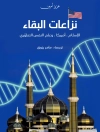It has been said that Chinese government was, until the republican period, government through li. Li is the untranslatable word covering appropriate conduct toward others, from the guest rituals of imperial diplomacy to the hospitality offered to guests in the homes of ordinary people. It also covers the centring of self in relation to the flows and objects in a landscape or a built environment, including the world beyond the spans of human and other lives. It is prevalent under the republican regimes of China and Taiwan in the forming and maintaining of personal relations, in the respect for ancestors, and especially in the continuing rituals of address to gods, of command to demons, and of charity to neglected souls. The concept of ‛religion’ does not grasp this, neither does the concept of ‛ritual’, yet li undoubtedly refers to a figuration of a universe and of place in the world as encompassing as any body of rite and magic or of any religion.
Through studies of Chinese gods and ghosts this book challenges theories of religion based on a supreme god and that god’s prophets, as well as those like Hinduism based on mythical figures from epics, and offers another conception of humanity and the world, distinct from that conveyed by the rituals of other classical anthropological theories.
लेखक के बारे में
Stephan Feuchtwang, University of London.












